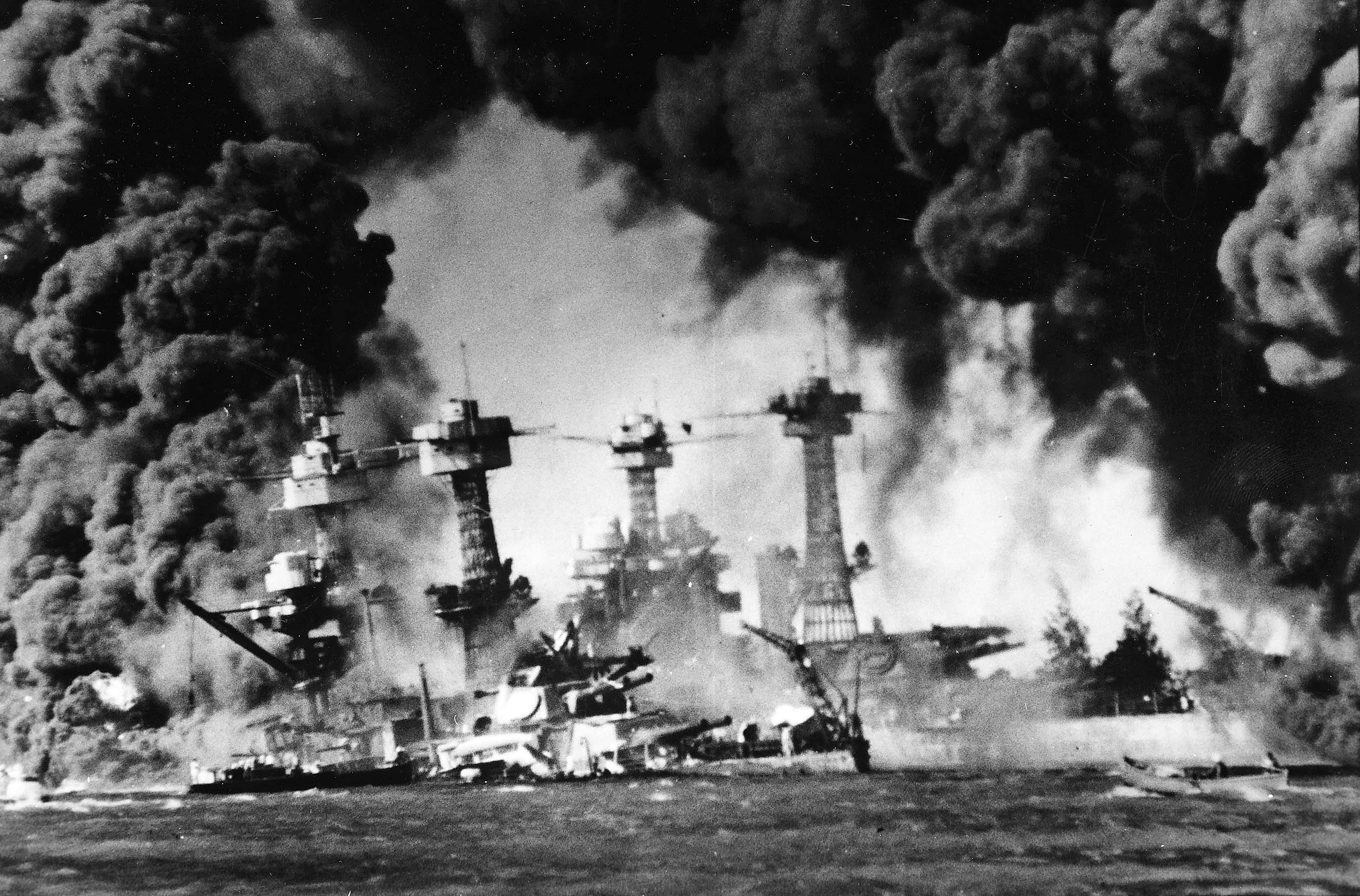Remembering the day of infamy
It’s hard to imagine a less memorable anniversary than the 79th, which is today’s for Pearl Harbor Day, the infamous attack that drew us into World War II, and opened the door for America to emerge as a superpower and leader of the free world.

There will be notice taken of the anniversary on the news, there will be commemorations, and wreath laying (at the U.S.S. Arizona, among others), and memorials. But the bigger salutes will come next year, on the 80th, when we will see fewer survivors of the sneak attack.
That the U.S. should have anticipated. We were unprepared, as we often are. 9/11 being another example.
At the war’s outbreak, the U.S. army was smaller than that of Portugal. We were unprepared, although the draft had been reinstituted in 1940.
I know a lot of people believe we spend too much on defense, and there is some truth to that, but we should have learned that a weak America invites attack, while a strong America helps protect against attack.
We lost about 2,400 Americans on Pearl Harbor Day.
Those deaths galvanized a nation, and from way back in the pack, an army and air force were built up. Millions of men were drafted on top of those who volunteered. America’s industrial base went on a wartime footing and millions of Jeeps, and tanks, and bombers, and fighters, and rifles, and bombs, were mass produced.
As Japanese Admiral Isoroku Yamamoto, who planned the attack on Pearl Harbor, reportedly wrote in his diary, “I fear all we have done is to awaken a sleeping giant and fill him with a terrible resolve.”
He was right.
I look back on World War II with a kind of manufactured nostalgia. As I grow closer to the end of my days, I feel myself being drawn closer to what is called, rightfully, the Greatest Generation. I feel more kinship with them than my own selfish generation, and those following.
I was born before the war but have no memory of it. My earliest memory in life, though, was playing in a closet in our ground-floor apartment in The Bronx, and hearing a knock on the front door, which was wood with glass panes.
Knocking on the door, silhouetted against the late-afternoon golden light on the tenement across the street, was a man in an Army uniform. My mother came out of the kitchen and turned the corner to the foyer, from where she could see the soldier.
I remember she screamed. It was her brother, my Uncle Sonny, returning from the war.
—-
I can’t forget Pearl Harbor Day, a horrible loss that started our war, and I can’t forget D-Day, a significant victory that proved to be the beginning of the end for Hitler and his “master race.”
Last year, the 75th anniversary of D-Day, I felt myself drawn to Normandy, where I toured the battlefield, then the American cemetery, where I adopted a Pennsylvania soldier named Eake De Marco.
I don’t know what draws me to this. Perhaps because it was the last war that asked so much of us, or because it was the last “good war,” without argument, perhaps because had we lost, freedom would have been extinguished throughout the world.
The men who fought the war were mainly in their teens and early 20s, the people who today need safe spaces on campus to hide them from unpleasant ideas.
I exempt from that the 1% who volunteer for military service. Do we thank them enough? I don’t think so.
I think of them, and thank them, as we mark another Pearl Harbor Day.



